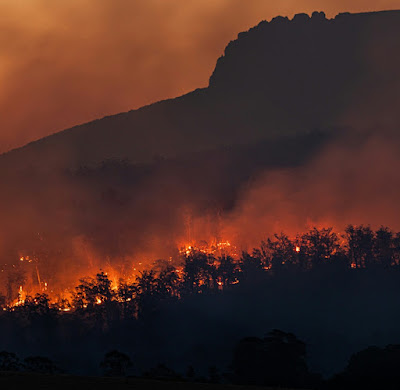Will climate change cause the Amazon rainforest to turn into a savannah?
 |
| Forest fires and climate change |
Will climate change cause the Amazon rainforest to turn into a savannah?
The Amazon rainforest is well humid, but researchers around the world are increasingly asking how long this will be true.
About three decades ago, alarming research began to suggest that the cumulative effects of both deforestation and climate change could cause significant changes in the South American forest, with the forest expected to become drier and more savanna-like than Africa. Instead of lush, wet and dense landscapes.
For nearly two centuries, the Amazon region has acted as a natural buffer protecting our world by absorbing carbon dioxide and releasing oxygen needed for life, as these forests absorb up to two billion tons of greenhouse emissions annually, but during the past few decades unfortunately, The clearing of trees from the Amazon for the purpose of growing soybeans for livestock or animal pastures has exacerbated the drought in the region, with studies already confirming that the heavily deforested eastern part of the Amazon has already turned into a barren wasteland now emitting More carbon than you absorb.
Thus, it can be said that the Amazon rainforest is not the only system that can be overturned. There are many forests in the world that are threatened with turning into barren land, which is already creating a major problem worldwide as a result of climate. change.
Therefore, all countries of the world, governments and humanitarian organizations, led by the International Federation of Red Cross and Red Crescent Societies, must move vigorously to protect forests from cutting down trees in order to reduce the impact of climate change and work hand in hand to protect our planet and protect. our rights to life and food and healthe

Comments
Post a Comment
Thank you for comment